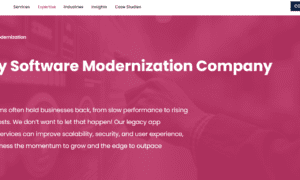In today’s fast-paced digital landscape, businesses are increasingly turning to strategic IT outsourcing as a way to stay competitive and efficient. Managed Service Providers (MSPs) play a crucial role by offering specialized expertise, cost savings, and scalable solutions tailored to evolving business needs. By leveraging MSPs, organizations can focus on their core operations while ensuring their technology infrastructure drives long-term success.
Understanding Managed Service Providers (MSPs): Roles and Responsibilities
Managed Service Providers (MSPs) are specialized organizations that deliver comprehensive IT outsourcing solutions designed to optimize and secure enterprise technology environments. Their core responsibilities typically include proactive network monitoring, infrastructure management, system administration, and providing dedicated help desk and IT support services. MSPs employ cutting-edge cloud services and software as a service (SaaS) platforms to streamline operations and enable seamless remote management across diverse IT assets.
Beyond basic support, MSPs often act as a strategic partner by offering technical consulting, technology consulting, and even serving as a virtual CIO to help organizations align their IT roadmap with business objectives. Security is a paramount consideration; many MSPs provide specialized cybersecurity services such as network security, endpoint management, and act as a managed security provider to ensure compliance with evolving regulatory mandates around IT compliance.
The Benefits of Partnering with MSPs for Strategic IT Outsourcing
Engaging an MSP offers organizations numerous strategic advantages, foremost among them is the enhancement of operational efficiency and risk reduction. By outsourcing IT functions, companies tap into specialized expertise without the overhead of maintaining large in-house teams. This enables them to benefit from best-in-class infrastructure management, comprehensive network monitoring, and responsive help desk support services, often governed by stringent service level agreements (SLAs) that guarantee performance levels and uptime.
MSPs provide scalable solutions via cloud services and software as a service, allowing businesses to adjust their IT capabilities in real time to meet market demands and seasonal fluctuations.
Key Factors to Consider When Choosing a Managed Service Provider
Selecting an MSP requires careful evaluation across multiple dimensions to ensure alignment with organizational goals and IT requirements. Critical factors include:
- Service Portfolio and Expertise: Assess whether the MSP offers end-to-end solutions encompassing infrastructure management, network security, data backup and recovery, and disaster recovery. Providers like IBM Managed Services and Accenture offer comprehensive portfolios suited for complex enterprises, while niche providers like Datto excel in backup and recovery.
- Security Capabilities: Verify the scalability and sophistication of the MSP’s cybersecurity services. A robust managed security provider must integrate advanced threat intelligence, continuous monitoring, and compliance support.
- Technology Alignment: The MSP should demonstrate expertise in modern platforms including cloud services, SaaS, and cutting-edge endpoint management tools to support hybrid and remote workforces effectively.
- Customization and Flexibility: The ability to customize services and adhere to tailored service level agreements is vital. Firms like Rackspace Technology and Cognizant are renowned for flexible engagement models.
- Customer Support: Evaluate responsiveness and depth of the help desk and IT support teams. Proactive network monitoring and remote management are essential for minimizing downtime.
How MSPs Enhance Business Agility and Security
MSPs empower businesses to accelerate their digital transformation agendas through scalable and secure IT infrastructures. By leveraging cloud-based platforms and software as a service, organizations reduce capital expenditure while gaining agility to expand or contract resources instantly.
The implementation of advanced network monitoring and endpoint management tools by MSPs ensures real-time visibility and rapid response, preempting issues before they escalate. This proactive approach supports operational continuity, bolstered by comprehensive data backup and recovery and disaster recovery protocols to minimize the impact of unexpected outages or cyber incidents.
Measuring Success: Evaluating the Impact of MSPs on IT Performance
Quantifying the benefits of MSP partnerships is essential for continuous improvement and justification of IT outsourcing investments. Key performance indicators typically include:
- System Uptime and Availability: Monitored through service level agreements, reflecting the MSP’s effectiveness in network monitoring and infrastructure management.
- Incident Resolution Time: The responsiveness of help desk and IT support teams to address and resolve issues.
- Security Incident Reduction: Tracking the frequency and severity of breaches post-implementation of the MSP’s cybersecurity services and managed security provider offerings.
- Compliance Adherence: Successful audits and certifications demonstrate effective IT compliance.
- Cost Efficiency: Reduction in operational costs via optimized remote management, consolidation of services like software as a service, and minimized downtime through proactive maintenance.
MSPs such as DXC Technology, Atos, and HCL Technologies provide comprehensive reporting and analytics to organizations, enabling transparent evaluation of IT performance and strategic alignment. Visit awd.com.au for more details.



































